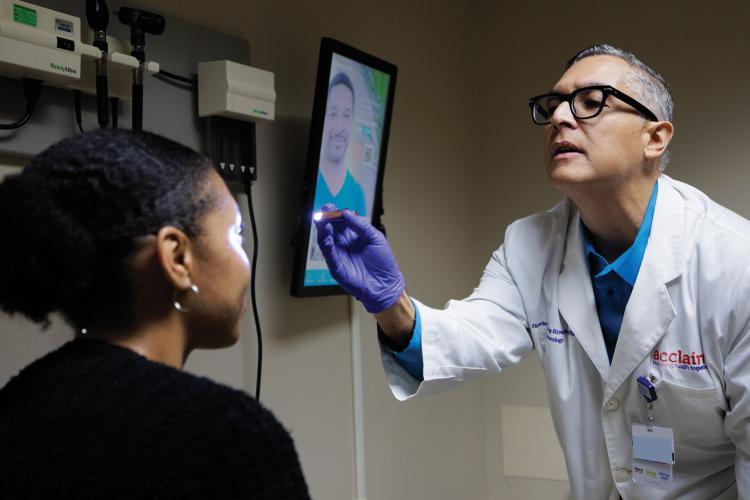
Season 5: Episode 8 Show Notes
Being diagnosed with Multiple Sclerosis (MS) is a challenging experience, especially since there is currently no cure. Many individuals may find it difficult to navigate this diagnosis, feeling as though their lives are over. However, this doesn't have to be the case. By acknowledging the diagnosis and maintaining appropriate treatments, patients can continue living fulfilling lives.
Brian Maschino and Tatiyana Giddings met with Horacio Chiong-Rivero, MD, to understand more about an MS diagnosis and how patients can still maintain a happy and high-quality life while dealing with this lifelong condition. This involves establishing a new normal baseline and finding happiness despite the circumstances.




What is Multiple Sclerosis?
MS is an autoimmune condition that tends to involve exclusively the brain, and/or the spinal cord and sometimes the optic nerves, which helps us see.
Symptoms of MS
According to the National Multiple Sclerosis Society, symptoms of MS are,
- Bladder Dysfunction
- Bowel Dysfunction
- Cognitive Changes
- Depression
- Emotional Changes
- Fatigue
- Fatigue
- Numbness or Tingling
- Pain and Itching
- Vertigo and Dizziness
- Vision Issues
- Walking Difficulties
- Weakness
MS symptoms typically start gradually. For example, you may notice the symptoms beginning in the morning and may worsen throughout the day. The next day, you may experience numbness and tingling on one side of your body. With Vision, problems can develop quickly and can be alarming.
How is MS Diagnosed?
Consulting with an MS expert is crucial for patients experiencing unusual symptoms. The key to successfully diagnosing MS is in carefully listening to and considering what the patient is describing. Additionally, Imaging, particularly through MRI, plays a critical role in an MS diagnosis, along with blood work and, in some cases, a spinal tap. The identification of MS lesions, white spots with an oval shape, is key in imaging. Diagnosing MS can be challenging, making imaging of the brain and spinal cord essential.
What are MS Lesions, and what effect do they have on the brain?
MS lesions are large white spots with an oval shape that are spread out and located in specific areas of the brain. They are caused by a process called demyelination. If the lesions are small and located in certain areas of the brain, a person may not experience any symptoms. However, if they affect a specific area responsible for functions like arm or facial movement, then symptoms become identifiable.


Who is affected by MS?
MS can affect anyone, but it is most commonly diagnosed in adults between the ages of 20 and 50. Women are two to three times more likely to be diagnosed with MS than men.
Types of MS
MS is divided into four different types, which are,
- Clinically Isolated Syndrome (CIS)
- Relapsing-Remitting MS (RRMS)
- Secondary Progressive MS (SPMS)
- Primary Progressive MS (PPMS)
